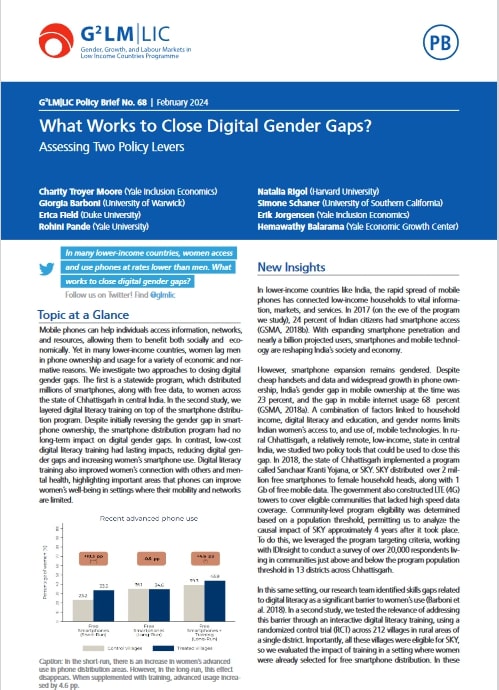Mobile phones can help individuals access information, networks, and resources, allowing them to benefit both socially and economically. Yet in many lower-income countries, women lag men in phone ownership and usage for a variety of economic and normative reasons. We investigate two approaches to closing digital gender gaps. The first is a statewide program, which distributed millions of smartphones, along with free data, to women across the state of Chhattisgarh in central India. In the second study, we layered digital literacy training on top of the smartphone distribution program. Despite initially reversing the gender gap in smartphone ownership, the smartphone distribution program had no long-term impact on digital gender gaps. In contrast, low-cost digital literacy training had lasting impacts, reducing digital gender gaps and increasing women’s smartphone use. Digital literacy training also improved women’s connection with others and mental health, highlighting important areas that phones can improve women’s well-being in settings where their mobility and networks are limited.

What Works to Close Digital Gender Gaps?
Assessing Two Policy Levers
- Charity Troyer Moore
- Giorgia Barboni
- Erica Field
- Rohini Pande
- Natalia Rigol
- Simone Schaner
- Erik Jorgensen
- Hemawathy Balarama